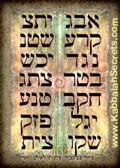One Incident Can Change Everything
There are certain pivotal incidents in the Torah that the rest of the narrative hinges upon. One such moment was when Joseph was seduced by Potiphar’s wife and refused her numerous advances. The Midrash explains just how far along they were before he comes to his senses. There are two aspects never noted in the commentaries that make this couple of verses special. The first is their parallel similarity to Adam being first and given everything in the garden and with there being but one fruit that he could not eat. The Torah purposely refers to that prohibition as “The tree” and similarly as “The wife.” On both occasions the tree and similarly the wife belonged to the master.
“He adamantly refused. He reasoned with his master’s wife. “My master does not even know what I do in the house. He has entrusted me with everything he owns. No one in this house has more power than I have. He has not kept back anything at all from me, except for you—his wife. How could I do such a great wrong? It would be a sin before God!”
Adam sinned in Genesis 3:6 when he could not resist the temptation or entreaties of his wife. In Genesis 39:8-9 Joseph states that he was given access to everything in Potiphar’s household and is as master over it all, except Potiphar’s wife. Unlike Adam, he ultimately resists the temptation—the Midrash tells us he saw a vision—and says, “How then can I do this great wickedness, and sin against God?”
The second aspect that makes this incident so special is where Joseph found his strength and what caused his vision. The communicated words are the lowest level of understanding of the Torah. The hidden codes revealed by those words show us the underlying technology and how to use it. This is the much deeper level of understanding.
וַיְמָאֵן–וַיֹּאמֶר אֶל-אֵשֶׁת אֲדֹנָיו, הֵן אֲדֹנִי לֹא-יָדַע אִתִּי מַה-בַּבָּיִת; וְכֹל אֲשֶׁר-יֶשׁ-לוֹ, נָתַן בְּיָדִי.
-Genesis 39:8
 The numerical value of Genesis 39:8 is 3701, the exact same as the 42-Letter Name of G-d, and the katan or reduced value of the verse is 173, the exact same as the 42-Letter Name of G-d. There are no coincidences in the Torah, and the odds against this verse sharing the standard gematria and the reduced gematria over its 58 letters with the complementary (100 – 58) = 42 letters of the 42-Letter Name are astronomical.
The numerical value of Genesis 39:8 is 3701, the exact same as the 42-Letter Name of G-d, and the katan or reduced value of the verse is 173, the exact same as the 42-Letter Name of G-d. There are no coincidences in the Torah, and the odds against this verse sharing the standard gematria and the reduced gematria over its 58 letters with the complementary (100 – 58) = 42 letters of the 42-Letter Name are astronomical.
Joseph was probably 17 years old, and Potiphar’s wife was beautiful, beguiling, and seductive. We are being shown the power of the 42-Letter Name to strengthen us against the temptations of physicality.
Another message in this incident is that the Torah is teaching us what happens when we use the 42-Letter Name of G-d. Joseph restricted but was thrown in jail anyway. Had he not restricted he probably would have eventually been caught and killed, but as soon as he is placed in jail, we are told G-d was with Joseph and we all know that this led to Joseph becoming like Pharaoh ruling over all Egypt. When we use the 42-Letter Name of G-d we grow closer to the Creator and more in alignment with Him and the Cosmos, and even if it may seem as if nothing has changed in our circumstances, our path may indeed have shifted, and given time, better opportunities will arise. The Torah is telling us that every time we use the 42-Letter Name, G-d’s presence with us grows stronger. It is a metaphysical magnet that realigns us with our consciousness.
In the 137th paragraph of the 5th Book, and in the location of the 1730th YHVH (יהוה) in the Torah, the Creator ties together the concept of fruit of the tree and the wife in a horrific admonition against disobeying Him and his commandments. It is also a premonition about the end of days. The Torah is hinting at what we will need in these days.




